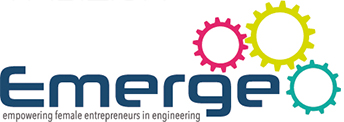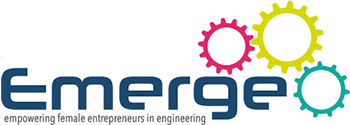Starting a business is hard work. Unfortunately for women in Engineering fields, it can be even harder.
Women founders received less than two percent of the $85 billion invested by venture capitalists last year, according to Fortune Magazine. And although women fill close to half of all jobs in the U.S. economy and are starting businesses at twice the rate of men, they hold less than 25 percent of STEM jobs nationwide.
But there is a generation of innovative women entrepreneurs pushing for change, fighting for opportunity, and who aren’t taking no for an answer. February 11th is International Day of Women and Girls in Science. In honor of that, Free Enterprise asked seven brave women entrepreneurs in the engineering fields to let us know one piece of advice they wish they had known when they got started. Here’s what they said.
Lavanya Jawaharlal+Melissa, co-founders of STEM Center USA
“As women entrepreneurs in Engineering, we often find ourselves alone in the process of starting and running a business – as most other companies and STEM fields are heavily male-dominated. To get over this hurdle, we are constantly watching women-led organizations and joining entrepreneurship groups that focus on engineering education and small businesses.
Finding like-minded individuals that have a drive for business and passion for their work has been the most effective way to receive and provide aid. Our best advice is to find a group or organization that you can actively participate in. This group will provide you the space to listen, learn, and give back.”
Leah La Salla, CEO & Co-Founder of Astral AR.
“As a woman in this industry, you will face a lot of doubters. There will be double standards. And sometimes there will be triple standards. Everyone tells you these things in advance, and you know these things are true. But when it happens it’s still a surprise. It’s still a slap in the face. You have to be better than average, and you have to know much more than the average start-up, because investors will demand it of you.
“One thing that helps is having truly great partners. If you can be strategic with your network and with who you do business with and can lean on them to support you when needed it takes some of the pressure to know everything off. It doesn’t fix everything, but it goes a long way.”
Angela Lee, Founder founder of 37 Angels.
37 Angels is a community of women investors working to educate early stage investors.
“Be honest with people about what you’re struggling with and ask for help. I’m now on my 4th startup, and I’ve gotten to be very transparent about what I’m struggling with. When I started my first startup, whenever people asked me how things were going, I’d always respond with “awesome!” If you keep doing that, then your network can’t help you. So get out there and start talking about what you’re struggling with!
People always talk about women having the imposter syndrome. I think the imposter syndrome gets a bad rap. I have felt like an imposter most of my life and I think it’s great. It means that I’m learning and growing. These days, once I feel comfortable in a role, I realize it might be time to leave because I’m stagnating. I say lean into the imposter syndrome.”
Samantha Snabes, Co-founder, re: 3D
3D is the creators of Gigabot, an industrial human-scale 3D printer that prints from plastic recyclables creating access to local and sustainable manufacturing material, which decimates costs and scales barriers in additive manufacturing. @re3Dprinting
“I think a great mentality that our team has which has allowed us to get to where we are is shooting for lofty goals, no matter how insurmountable the challenge may seem. You eat an elephant a bite at a time, and that’s a state of mind that helps us tackle big projects that others may have written off as impossible, like our current R&D project of creating a 3D printer that will use recycled plastic trash as feedstock.
The same advice can go for women in tech and engineering fields – you are every bit as qualified as anyone else, so set your sights high and take things one step at a time. The world needs big dreamers and people who will execute on a vision.
Sharmi Albrechsten, CEO, SmartGurlz Inc.
SmartGurlz is developing self-balancing robots and action dolls that encourage girls to learn to code.
“Whether it’s negotiating a deal, salary, or agency, contracts are at the center of our business. While there are many ways to approach a negotiation, the choices you make can have a huge impact on your business and its bottom line.
My advice is to always look at how the contract can be ended (especially if you are the client). I have had expensive ‘lessons’ where I was stuck in a 6-month contract with an agency and while we were both clearly unhappy – but I was bound to the bitter end.”
Teri Dankovich, founder of Folia Water
Folia Water is a water filtration system made up of a single sheet of paper, which can provide 50 liters of safe water for 50 cents a sheet. @foliawater
“Imagine what success looks like as a business owner in a few years in the future, and then figure out what you need to do to get there. Ask other scientist-run startups for advice on how to get started and how to grow your business. Find more experienced business and technical people in your verticals for advisors. Create a community of other startup founders to share your wins and loses with. Be patient.”





